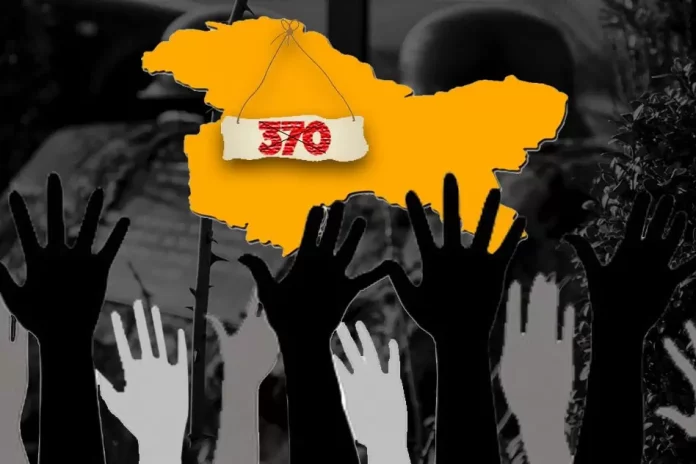DM Monitoring
SRINAGAR: The Jammu and Kashmir Legislative Assembly had passed a landmark resolution on No-vember 8, 2024, calling for the restoration of Article 370, reigniting a fierce political storm and drawing sharp criticism from the Bharatiya Janata Party (BJP).
The resolution, approved by a majority vote despite BJP’s opposition, seeks to reinstate the region’s special constitutional status, which was revoked in 2019. It was tabled by National Conference (NC) leader and Jammu and Kashmir’s Deputy Chief Minister, Chaudhary Surinder Singh.
The motion urged the Indian government to initiate dialogue for restoring Jammu and Kashmir’s spe-cial status and constitutional safeguards. Additionally, it called for a balanced approach to prioritize the rights and aspirations of the region’s residents, highlighting the ongoing debate over the constitutional and political future of Jammu and Kashmir.
This development comes amid growing discontent over the Srinagar 2035 Master Plan, which proposes resettling 3.4 million non-native Indians in the region. The resolution raised concerns over forced de-mographic changes, house demolitions, and the marginalization of the Muslim-majority population.
Despite BJP’s resistance, the Kashmiri leadership reaffirmed their commitment to the aspirations out-lined in United Nations resolutions. The Assembly emphasized protecting the region’s cultural and demographic integrity, rejecting any plans to dilute its identity under the guise of development. Observers see this resolution as a critical moment in the ongoing struggle for Jammu and Kashmir’s political autonomy, with local voices challenging New Delhi’s broader agenda of consolidating control over the region.
Earlier, Indian corporations are being likened to the ‘East India Company’ for their exploitative practic-es in the occupied Jammu and Kashmir.
The development projects are causing widespread environmental and social harm in the occupied val-ley. The government accused Megha Engineering and Infrastructure Limited (MEIL) of causing irreversible ecological damage through unscientific blasting and waste disposal at a hydropower project.
Locals near the site report property damage, health issues, and unfulfilled promises of employment. Protests have erupted, accusing MEIL of prioritising profits over the welfare of residents. Critics argue that Indian projects primarily benefit non-locals while worsening conditions for Kashmiris.
The controversial 850MW Ratle Hydropower Project is expected to reduce the Chenab River’s water fow by 40pc at Head Marala, threatening irrigation in Pakistan’s central Punjab.
Meanwhile, MEIL’s political ties have drawn scrutiny, with significant donations to the BJP through the electoral bonds scheme.
Observers highlight that the Indian government’s focus on resettling non-locals and militarising the region, rather than addressing local needs, contradicts claims of post-Article 370 abrogation benefits.



